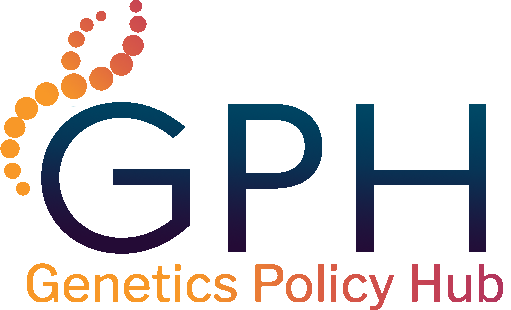From 2004 to 2024, the Health Resources and Services Administration (HRSA) funded the National Coordinating Center for the Regional Genetics Networks (NCC). NCC developed and maintained the Genetics Policy Hub.
With the conclusion of NCC funding, the Genetics Policy Hub (GPH) will no longer be updated or maintained. Information on GPH should be used for historical reference only.
Arizona
This data is meant to be used for educational purposes to inform providers, patients, insurers, and state Medicaid agencies what genetic services may or may not be written into each state’s Medicaid policy. The database is not meant to indicate or imply whether a certain program will cover a specific service, since many decisions are made on a case by case basis. If you have specific questions about whether a service is covered, you should reach out to your plan administrator. Please see this disclaimer below for more information.
Medicaid Coverage Information Published
State Contact Information
Carmen Heredia
Director
Arizona Health Care Cost Containment System
801 East Jefferson, MD 4100
Phoenix, AZ 85034
Phone: (602) 417-4711
https://medicaiddirectors.org/wp-content/uploads/2023/06/Public_DirectorsList_June2023-1.pdf
General Genetic Testing Criteria
Genetic testing and counseling are considered medically necessary when criteria 1.a.
through 1.d. are all met:
- The member:
- Displays clinical features of a suspected genetic condition, or
- Is at direct risk of inheriting the genetic condition in question (e.g., a causative familial variant has been identified in a close family member or the member’s family history indicates a high risk), or
- Is being considered for treatment which has significant risk of serious adverse reactions, or is ineffective, in a specific genotype,
- The results of the genetic testing are necessary to differentiate between treatment options, the member has indicated they will pursue treatment based on the results of the testing, and an improved clinical outcome is probable as evidenced by:
- Clinical studies of fair-to-good quality published in peer-reviewed medical literature have established that actions taken as a result of the test will improve clinical outcome for the member, or
- If the condition is rare, treatment has been demonstrated to be safe and likely to be effective based on the weight of opinions from specialists who provide the service or related services,
- The test is proven to be scientifically valid for the identification of the specific genetically-linked disease or clinical condition, and
- A licensed genetic counselor or the ordering provider has counseled the member about the medical treatment options prior to the genetic test being conducted.
Irrespective of the requirements of 1, above, genetic testing and counseling are also considered medically necessary when:
- The results of the genetic testing will confirm either:
- A diagnosis and by so doing avoid further testing that is invasive and has risks of complications, or
- A significant developmental delay in an infant or child and the cause has not been determined through routine testing. In this case, the genetic testing is limited to Chromosomal Microarray (CMA) and chromosomal testing for Fragile X. Any further gene testing shall meet all other criteria in this policy,
- The test is proven to be scientifically valid for the identification of the specific genetically-linked disease or clinical condition, and
- A licensed genetic counselor or the ordering provider has counseled the member prior to the genetic test being conducted.
Genetic Testing Not Covered
Genetic testing is not covered under the following circumstances:
- To determine specific diagnoses or syndromes when such diagnoses would not definitively alter the medical treatment of the member except as described in 2.a.i. or 2.a.ii.,
- To determine the likelihood of associated medical conditions occurring in the future,
- As a substitute for ongoing monitoring or testing of potential complications or sequelae of a suspected genetic anomaly,
- For purposes of determining current or future reproductive decisions,
- For determining eligibility for a clinical trial , or
- Paying for panels or batteries of tests that include one or more medically necessary tests, along with tests that are not medically necessary, when the medically necessary tests are available individually.
State Specific Definition
Genetic testing is the sequencing of human DNA obtained from of a small sample of body fluid or tissue in order to discover genetic differences, anomalies, or mutations.
Genetic Services for Children
Genetic Counseling Requirement
A licensed genetic counselor or the ordering provider must counsel the member about the medical treatment options prior to the genetic test being conducted.
Metabolic Formula Coverage Legislation
A.R.S. § 20-2327
Metabolic Formula Coverage & Criteria
Metabolic formulas and medical foods are covered for members diagnosed with metabolic conditions that are screened for on the Newborn Screening Panel. Refer to Arizona Department of Health Services at www.azdhs.gov/prepardness/state-laboratory/newbornscreening/index.php for a listing of conditions and the Newborn Screening Panel. Metabolic formulas and medical foods are covered as specified in A.R.S. § 20-2327 and within the following limitations:
- The Contractor and FFS Providers are responsible for the initial and follow-up consultations by a genetics physician and/or a metabolic nutritionist,
- The Contractor and FFS Providers are responsible for all medically necessary laboratory tests and other services related to the provision of medical formulas/foods for members diagnosed with an inherited metabolic disorder,
- Metabolic formula or modified low protein foods shall be processed or formulated to be deficient in the nutrient(s) specific to the member’s metabolic condition; meet the member’s distinctive nutritional requirements; determined to be essential to sustain the member’s optimal growth within nationally recognized height/weight or BMI, and metabolic homeostasis; obtained under physician order; member’s medical and nutritional
status shall be supervised by the member’s PCP, attending physician or appropriate specialist, - Modified low protein foods shall be formulated to contain less than one gram of protein per unit or serving. For purposes of this policy, modified low protein foods do not include foods that are naturally low in protein,
- Soy formula is covered only for members receiving Early and Periodic Screening, Diagnosis and Treatment (EPSDT) services and KidsCare members diagnosed with galactosemia and only until members are able to eat solid lactose-free foods,
- Foods that are available in the grocery store or health food store are not covered as a metabolic food, and
- Education and training regarding proper sanitation and temperatures to avoid contamination of foods which are blended or specially prepared for the memberis required, if the member/Health Care Decision Maker (HCDM), Designated Representative elects to prepare the member’s food.
Prior Authorization Requirements
Genetic testing requires prior authorization. Prior authorization requests shall include documentation regarding how the genetic testing is consistent with the genetic testing coverage described in this Policy, and at a minimum shall include:
- Recommendations from a licensed genetic counselor or ordering provider,
- Clinical findings including family history and any previous test results,
- A description of how the genetic test results will differentiate between treatment options for the member or meet the requirements of 2.a or 2.b,
- The rationale for choosing the particular type of genetic test requested (e.g., full gene sequencing, deletion/duplication, microarray, individual variants), and
- Medical literature citations as applicable.
Prior Authorization Forms
Fee Schedule
BRCA Testing Coverage
Yes, it is covered when requirements from General Genetic Testing Criteria are met.
Requirements for BRCA
Cystic Fibrosis Screening
Coverage is available.
Hereditary Cancer Testing Coverage
Yes, it is covered when requirements from General Genetic Testing Criteria are met.
Lynch Syndrome Testing Coverage
Yes, it is covered when requirements from General Genetic Testing Criteria are met.
Microarray Testing
Genetic testing and counseling are considered medically necessary when a significant developmental delay in an infant or child and the cause has not been determined through routine testing. In this case, the genetic testing is limited to Chromosomal Microarray (CMA) and chromosomal testing for Fragile X.
Newborn Screening
Panel Testing
Pharmacogenetic Testing
Cyp2d6 gene testing is a covered benefit.
Prenatal Testing Offered
Arizona Medicaid has approved the following codes for Noninvasive Pregnancy Testing only for High Risk Pregnancy
effective 03/01/2021.
These codes do require prior authorization.
- 81420 Fetal chromosomal aneuploidy (eg, trisomy 21, monosomy X) genomic sequence analysis panel, circulating cell-free fetal DNA in maternal blood, must include analysis of chromosomes 13, 18, and 21
- 81479 Unlisted molecular pathology procedure
- 81507 Fetal aneuploidy (trisomy 21, 18, and 13) DNA sequence analysis of selected regions using maternal plasma, algorithm reported as a risk score for each trisomy
Whole Exome Sequencing
The Arizona Medicaid programs received budget appropriations starting FY24 (July 1, 2023), to support implementation of a benefit to cover inpatient rapid whole genome sequencing (rWGS) for hospitalized infants and children. The two Medicaid programs are currently working through implementation specifications to make the benefit accessible to providers in these states.
Arizona policy will cover infants up to 1 year of age who are admitted to an intensive care unit or high acuity pediatric unit meeting clinical criteria.
Three-year pilot program, meaning without additional action funding will expire after three years. Providers in Arizona should reach out to RCIGM to discuss strategy and supportive actions for making this benefit permanent at the end of the pilot term. Included in State Budget Bill, SB1720.
Senate Bill 1726 passed in May. Under the state’s current healthcare budget, rapid whole-genome sequencing was added as a covered benefit for pediatric Medicaid patients who meet certain clinical criteria.
The state will submit a request for approval from the Centers for Medicare and Medicaid Services. If it’s approved by the federal government, the coverage for Medicaid patients could go into effect as soon as Oct. 30 of this year.The bill describes this as “pilot coverage” meaning the state will fund this rapid genetic testing through 2026.
Other Tests Covered
Other Information
Resources
Newborn Screening Reimbursement

Disclaimer: The information contained in the database has been obtained from sources believed to be reliable but NCC has not attempted to validate or confirm the information. The database may be updated periodically. However, the accuracy and completeness of the information contained in the database cannot be, and is not, guaranteed. NCC makes no warranty of the accuracy, completeness or timeliness of this information, and shall not be liable for any decision made in reliance on this information. It is the user’s responsibility to verify this information by contacting the state Medicaid agency directly.
The database contains links to third-party websites. These links are provided solely as a convenience to users and not as a guarantee, warrantee, or recommendation by NCC of the content on such third-party websites or as an indication of any affiliation, sponsorship or endorsement of such third party websites. NCC is not responsible for the content of linked third-party sites and does not make any representations regarding the privacy practices of, or the content or accuracy of materials on, such third-party websites. If you decide to access linked third-party websites, you do so at your own risk. Your use of third-party websites is subject to the terms of use for such sites.

